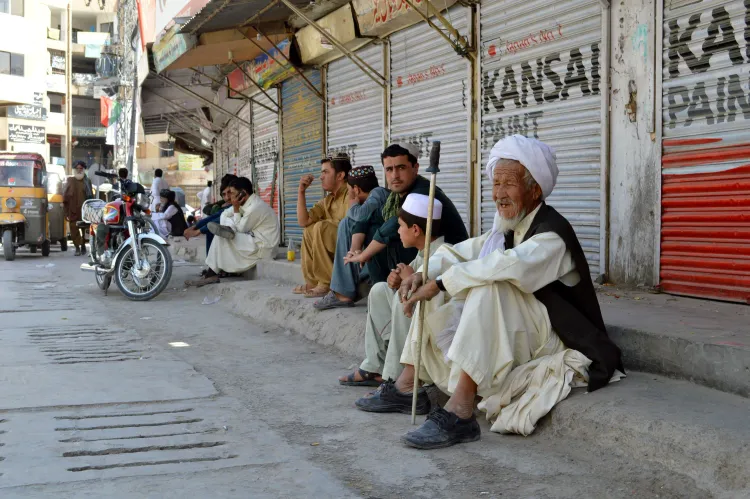Why Are Pakistani Authorities Imposing a Travel Ban in Balochistan?

Synopsis
Key Takeaways
- Travel restrictions have been imposed on civilians in Balochistan.
- The region is experiencing an information blackout due to the suspension of mobile services.
- The ban is deemed unlawful and oppressive by human rights organizations.
- The enforced disappearance of political activists raises serious human rights concerns.
- The actions violate international human rights obligations, including the ICCPR.
Quetta, Aug 11 (NationPress) A Baloch human rights organization has vehemently denounced the recent travel restrictions imposed by Pakistani authorities, which severely infringe upon the fundamental right to movement for civilians in Balochistan.
Paank, the Human Rights Department of the Baloch National Movement, highlighted that the ongoing repression in the region persists, as it has effectively become a zone of information blackout with the suspension of both 4G and 5G services. The latest travel ban will further alienate the province.
According to a recent order from the Deputy Commissioner of Kech, stringent travel limitations have been established for passenger coaches between Karachi, Turbat, Gwadar, and Panjgur. These restrictions permit travel only during specific hours and render movement beyond designated checkpoints impossible without prior security clearance,” stated the rights organization.
Labeling it an “unlawful and oppressive” directive, Paank emphasized that this ban will interfere with daily activities and violate the essential rights to free movement and access to vital services.
Recently, the Human Rights Council (HRC) of Pakistan condemned the authorities for cutting off internet and mobile services in Balochistan, describing it as a “blatant violation” of fundamental human rights.
“The decision by the Balochistan government to halt 3G and 4G mobile and internet services across the province starting August 6 is a cruel and disproportionate measure that affects millions of innocent individuals. This action undermines fundamental rights such as communication, freedom of expression, education, health, and employment,” the HRC Pakistan statement read.
Meanwhile, another human rights organization, the Baloch Yakjehti Committee (BYC), has raised serious concerns regarding the enforced disappearance of Sana Ullah Baloch, a Central Organizing Committee member of the National Democratic Party (NDP) in Balochistan.
According to information received, on August 10, Sana Ullah was apprehended by personnel from Pakistan’s Federal Investigation Agency (FIA) and Military Intelligence (MI) at Multan International Airport while en route to Saudi Arabia for Umrah. His current location remains unknown.
The BYC has called for the immediate and unconditional release of Sana Ullah Baloch.
They view this incident as a serious violation of the rights to freedom of expression and peaceful political participation. The targeting of political activists through enforced disappearances, the BYC stated, constitutes a grave breach of Pakistan’s obligations under international human rights law, including the International Covenant on Civil and Political Rights (ICCPR).









